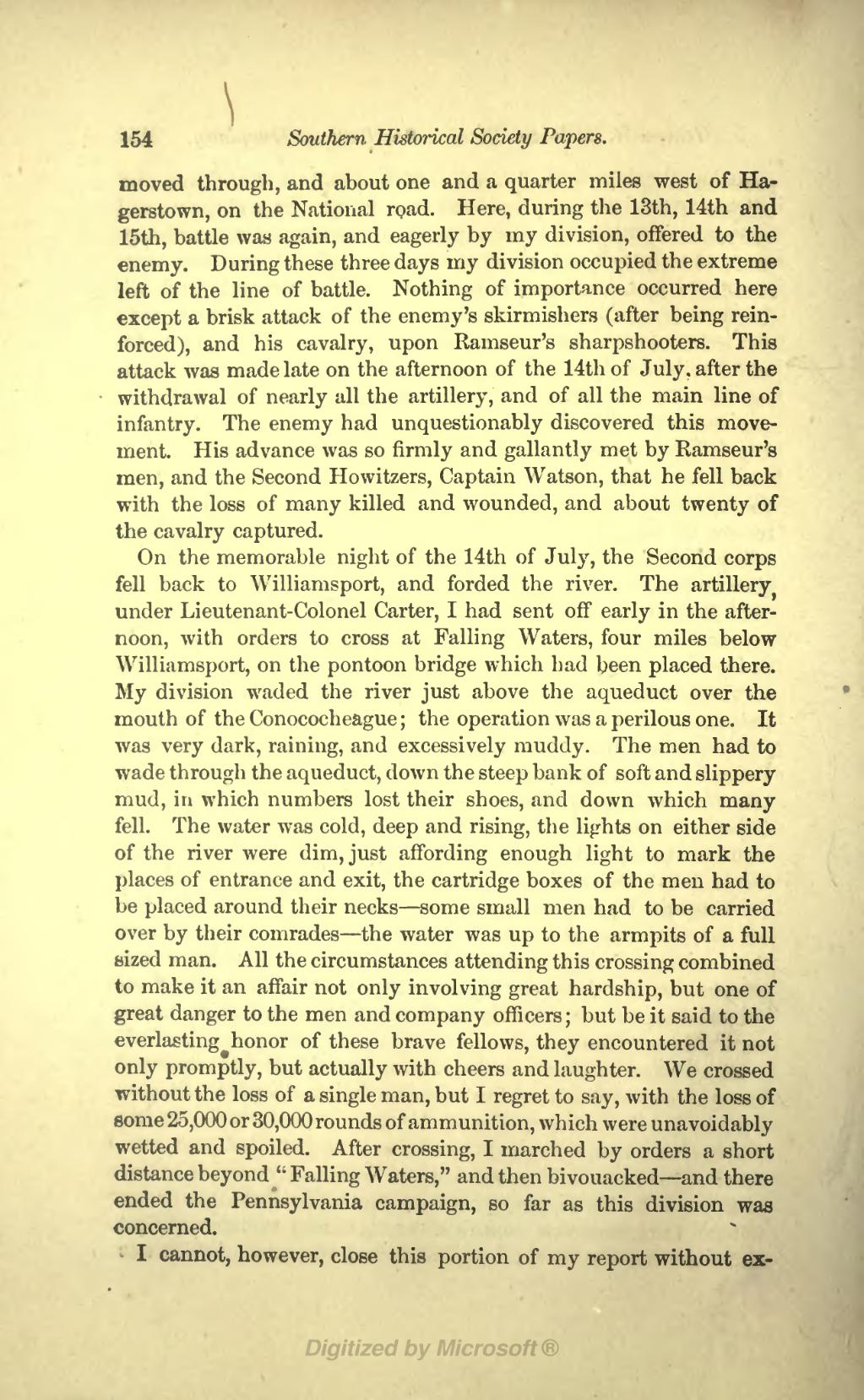moved through, and about one and a quarter miles west of Hagerstown, on the National road. Here, during the 13th, 14th and 15th, battle was again, and eagerly by my division, offered to the enemy. During these three days my division occupied the extreme left of the line of battle. Nothing of importance occurred here except a brisk attack of the enemy's skirmishers (after being reinforced), and his cavalry, upon Ramseur's sharpshooters. This attack was made late on the afternoon of the 14th of July, after the withdrawal of nearly all the artillery, and of all the main line of infantry. The enemy had unquestionably discovered this movement. His advance was so firmly and gallantly met by Ramseur's men, and the Second Howitzers, Captain Watson, that he fell back with the loss of many killed and wounded, and about twenty of the cavalry captured.
On the memorable night of the 14th of July, the Second corps fell back to Williamsport, and forded the river. The artillery under Lieutenant-Colonel Carter, I had sent off early in the afternoon, with orders to cross at Falling Waters, four miles below Williamsport, on the pontoon bridge which had been placed there. My division waded the river just above the aqueduct over the mouth of the Conococheague; the operation was a perilous one. It was very dark, raining, and excessively muddy. The men had to wade through the aqueduct, down the steep bank of soft and slippery mud, in which numbers lost their shoes, and down which many fell. The water was cold, deep and rising, the lights on either side of the river were dim, just affording enough light to mark the places of entrance and exit, the cartridge boxes of the men had to be placed around their necks—some small men had to be carried over by their comrades—the water was up to the armpits of a full sized man. All the circumstances attending this crossing combined to make it an affair not only involving great hardship, but one of great danger to the men and company officers; but be it said to the everlasting honor of these brave fellows, they encountered it not only promptly, but actually with cheers and laughter. We crossed without the loss of a single man, but I regret to say, with the loss of some 25,000 or 30,000 rounds of ammunition, which were unavoidably wet and spoiled. After crossing, I marched by orders a short distance beyond "Falling Waters," and then bivouacked—and there ended the Pennsylvania campaign, so far as this division was concerned.
I cannot, however, close this portion of my report without ex-
